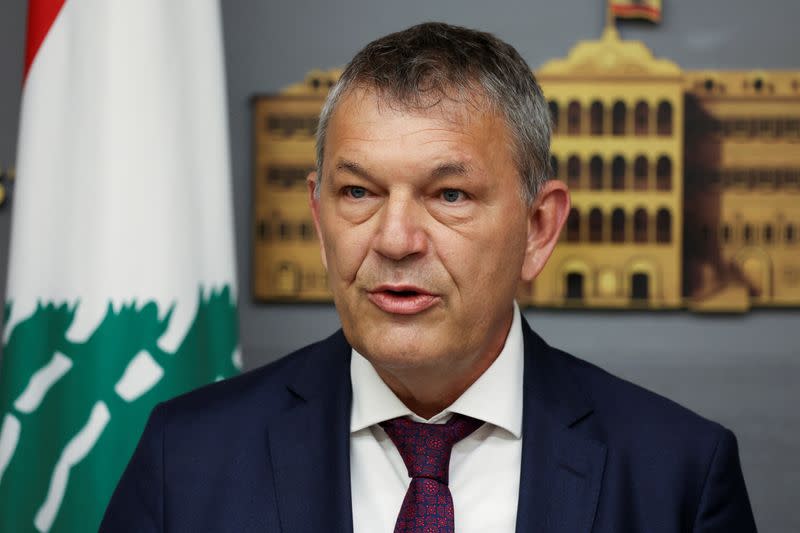Gaza hostilities continue despite Israeli armed forces announcement, UNRWA chief says

By Gwladys Fouche
OSLO (Reuters) - Hostilities continue in Rafah and southern Gaza despite the Israeli military's announcement on Sunday of tactical pauses in operations to allow humanitarian aid to enter, UNRWA chief Philippe Lazzarini told reporters in Oslo on Monday.
Israeli Prime Minister Benjamin Netanyahu on Sunday criticized plans announced by the military to hold daily pauses in fighting along one of the main roads into the Palestinian enclave.
Lazzarini, commissioner general of UNRWA, the main organisation delivering humanitarian aid to Gaza, said that there had been no pause in the fighting.
"There has been information that such a decision has been taken, but the political level says none of this decision has been taken," Lazzarini told a press conference.
"So for the time being, I can tell you that hostilities continue in Rafah and in the south of Gaza. And that operationally, nothing has changed yet."
The Israeli military said on Monday its forces were continuing focused, intelligence-based operations in the Rafah area, which included close combat with militants and seizure and destructions of weapons.
The military had announced at the weekend the daily pauses from 0500 GMT until 1600 GMT in the area from the Kerem Shalom Crossing, in southern Israel, to the Salah al-Din Road and then northwards. It later clarified that normal operations would continue in Rafah, the main focus of its operation in southern Gaza.
Meanwhile residents said Israeli forces were advancing deeper into the central and western areas of Rafah under heavy fire from the ground and the air on Monday.
Armed groups led by Hamas were fighting from close range inside the Al-Shaboura camp in the heart of Rafah, according to militants and residents, who reported hearing sounds of non-stop explosions and gunfire.
Lazzarini later told Reuters UNRWA received a notification from the Israeli military that there would be a pause, but that it was in English only, not in any other language and was soon followed by the government contradicting that instruction.
"For the time being, I see nothing which would qualify to the definition of a pause," he said.
(Reporting by Gwladys Fouche in Oslo; additional reporting by Maayan Lubell in Jerusalem, writing by Terje Solsvik and Gwladys Fouche, editing by Louise Rasmussen and Alex Richardson)

 Yahoo News
Yahoo News 
